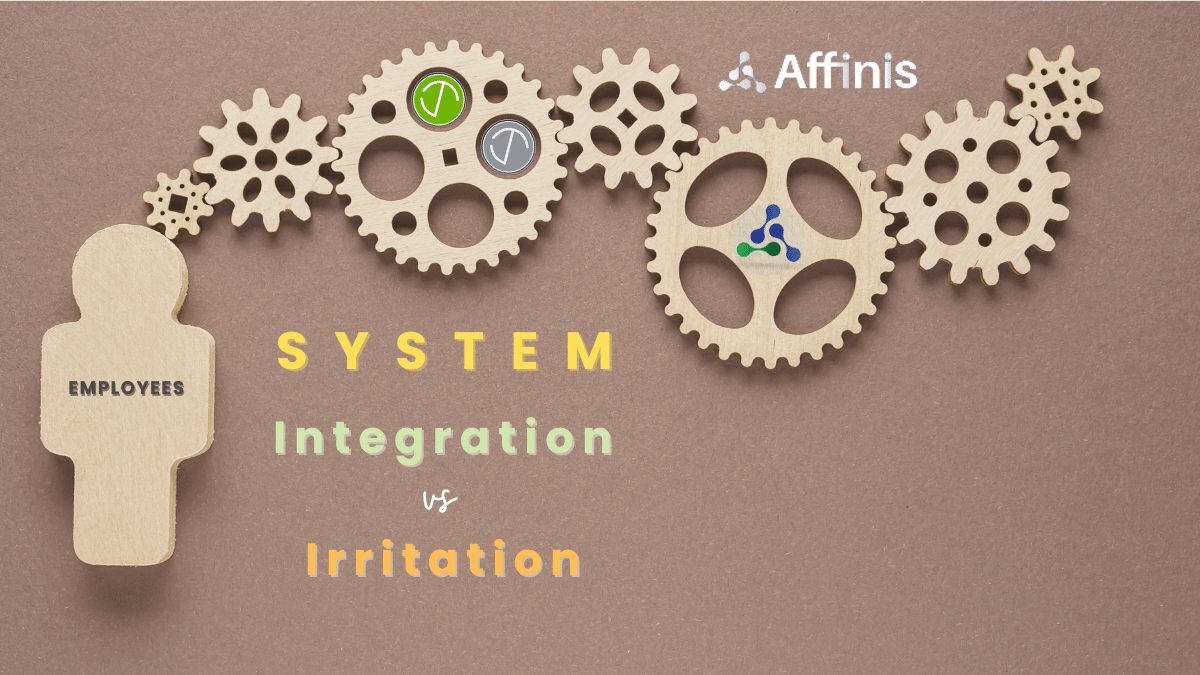Sometimes, Employee Trade Preclearance processes feel similar to multiple hands stuck together in knots, each reliant on the other to free themselves up. Compliance Officers and employee trade pre-clearance teams dealing with the management of Insider Trading Compliances may find the following complaints familiar…
“We had just invested the money in these three scrips till we needed them for down-payment. The money is now needed urgently as it is the last day for the down-payment for our residential purchase, otherwise we will have to go through the entire credit clearance process again and pay a higher price!. Please complete the review and approval process before end of market hours today!”
– Research Lead, Regulated Intermediary to Compliance Officer
“My wife’s company already has it’s own pre-clearance requirements, why must she keep seeking approvals from our company too? It is so time-consuming that by the time the buy-request is raised and approved by us, the price of the stock has increased”
– Senior Financial Officer, SEBI Registered Merchant Banker to Preclearance Team
Compliance officers often come across many challenges and complaints in implementing pre clearance requirements for connected persons. Pre clearance refers to the process of obtaining permission before engaging in certain activities, such as trading securities or conducting business with certain individuals or entities. This is a challenge that requires a comprehensive set of policies and procedures to be in place.
In this article, we discuss why persons connected to designated persons are impacted by the preclearance process. We start with the basics, the general challenges in implementing pre clearance requirements, the key elements of pre clearance requirements for connected persons and best practices for meeting pre clearance requirements, penalties for non-compliance with pre clearance requirements, and pre clearance software solutions.
What are Insider Trading pre-clearance requirements for connected persons
Pre clearance requirements are a crucial aspect of insider trading compliance, especially for connected persons. A connected person is an individual or entity who has a close relationship with an insider, such as a director, officer, or major shareholder of a company. Connected persons may have access to confidential information that could be used for insider trading or other illegal activities. Therefore, pre clearance requirements are necessary to prevent such activities and maintain the integrity of the financial markets.
Pre clearance requirements typically involve obtaining permission from a compliance officer before engaging in certain activities or transactions. For example, if a connected person wants to purchase or sell securities, they must obtain pre clearance from a compliance officer to ensure that the transaction is not based on insider information. Pre clearance requirements also apply to other activities, such as conducting business with certain individuals or entities, making political contributions, or accepting gifts or entertainment.
The importance of pre-clearance in compliance
Pre clearance is an essential aspect of compliance because it helps prevent insider trading and other illegal activities that can harm the financial markets. By obtaining pre clearance for connected persons, Designated Persons can ensure that their actions are in compliance with relevant laws and regulations. Pre clearance also helps companies maintain the integrity of their operations and avoid reputational damage (needless to add, failure to comply with pre clearance requirements can result in significant penalties, including fines, legal action, and reputational damage).
The challenges in implementing pre clearance requirements
Implementing pre clearance requirements can be challenging for companies, especially those with a large number of employees which result in an even larger number of connected persons. SEBI registered Intermediaries face this challenge even more acutely. One of the biggest challenges is ensuring that Designated Persons and their connected persons are aware of the pre clearance requirements and understand their obligations. Many connected persons may not be familiar with the concept of pre clearance or may not understand the consequences of non-compliance.
Another challenge is ensuring that pre clearance requests are processed in a timely manner. Compliance officers may receive a large number of pre clearance requests, and it can be difficult to process them all quickly or in a timely manner, resulting in significant hardships and possibly, detrimental financial impact. This can also result in delays that can impact business operations in addition to the individual’s financials. A highly intelligent automation system is critical in such situations.
Finally, implementing pre clearance requirements can be effort (and hence manpower) heavy while still remaining open to operational lapses. Companies need to invest in automated and controlled software applications and other resources to ensure that preclearance requirements are met.
Understanding the connected persons concept
Connected persons are individuals or entities who have a close relationship with an insider, such as a director, officer, or major shareholder of a company. Connected persons may include immediate family and others with whom the insider has a close relationship.
It is important to understand the concept of connected persons as well as Material Financial Relationships because pre clearance requirements apply to both. Companies must identify and maintain a list of connected persons to ensure that pre clearance requirements are applied correctly. Again, having a continually updated system that allows Designated Persons to independently update these on an ongoing basis without active compliance intervention or effort is a must.
Key elements of pre clearance requirements
Pre clearance requirements typically include several key elements, including:
- Identification of connected persons: Companies must maintain a list of connected persons and by extension, ensure that they are aware of the pre clearance requirements through Designated Persons.
- Pre clearance requests: Connected persons must obtain pre clearance before engaging in certain activities or transactions.
- Pre clearance processing: Compliance officers must process pre clearance requests in a timely manner and ensure that they are approved or denied based on relevant laws and regulations.
- Recordkeeping: Companies must maintain records of pre clearance requests and approvals to demonstrate compliance with relevant laws and regulations.
Best practices for meeting pre clearance requirements
To meet pre clearance requirements, SEBI registered Intermediaries should consider implementing the following best practices:
- Educate connected persons: Companies should intimate the regulatory obligations, including possibly imparting training and education to ensure that they understand the pre clearance requirements and their obligations. Sometimes, even Designated Persons may not be fully aware of the severity or consequences.
- Streamline pre clearance requests: Companies should implement a streamlined process for pre clearance requests to ensure that they are processed quickly and efficiently.
- Secrecy: Decisioning as part of automation should also maintaining the secrecy of the lists that contain who can or cannot deal in which scrip and for what reason. These lists are typically known as grey lists or restricted lists, neither of which are commonly agreed terms.
- Additional reviews: Approval automation should also consider the need for additional review and approvals from those closer to the work profile of the employees seeking such approvals for their possession of any related inside information or Unpublished Price Sensitive Information (for example, the supervisor).
- Pre clearance software: Companies need to consider using pre clearance software to automate the pre clearance process and ensure that requests are processed in a timely manner.
- Monitor compliance: Companies should monitor compliance with pre clearance requirements and take corrective action if necessary.
Penalties for non-compliance with Insider Trading pre clearance requirements
Failure to comply with pre clearance requirements can result in significant penalties, including fines, legal action, and reputational damage. The specific penalties may vary depending on the industry and the jurisdiction, but they can be severe. Listed entities and intermediaries should (and usually do, ready why) take pre clearance requirements seriously and ensure that they are in compliance with relevant laws and regulations.
Trade tracking and pre clearance software solutions
Pre clearance software solutions can help businesses, especially SEBI registered Intermediaries, streamline the pre clearance process and ensure that requests are processed in a timely manner. Pre clearance software can automate many aspects of the pre clearance process, including request submission, processing, review, intimation, verification, reports and recordkeeping. By using pre clearance software, companies can save time and resources while ensuring compliance with relevant laws and regulations.
Conclusion: Importance of compliance with pre clearance requirements
Pre clearance requirements are a crucial aspect of compliance, especially for connected persons. By obtaining pre clearance, connected persons can ensure that their actions are in compliance with relevant laws and regulations. Companies must implement pre clearance requirements to prevent insider trading and maintain the integrity of their operations.
Penalties for non-compliance with pre clearance requirements are severe while compliance costs and efforts are high while at the same time being error prone. As such, employee trading and tracking software that incorporates pre clearance, tracking and record keeping combined with controls and confidentiality can help companies streamline the pre clearance process and ensure compliance with confidence.
The beneficial impact will be immediately felt not just by the compliance officer and the Designated Persons but also their connected persons like their immediate families. The connected persons who are otherwise unconnected with your companies internal processes need not be compelled to helplessly await closure of the internal pre clearance process even as the stress on compliance officers increases.



